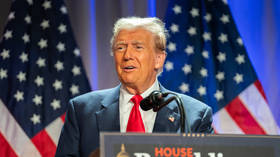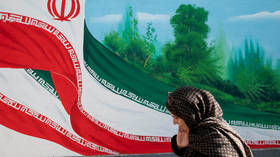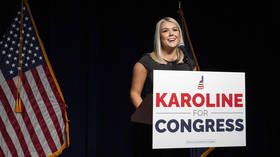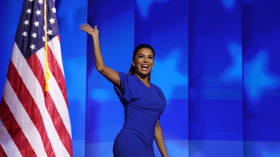Bully pulpit: Clergy illegally preach for, against Clinton & Trump
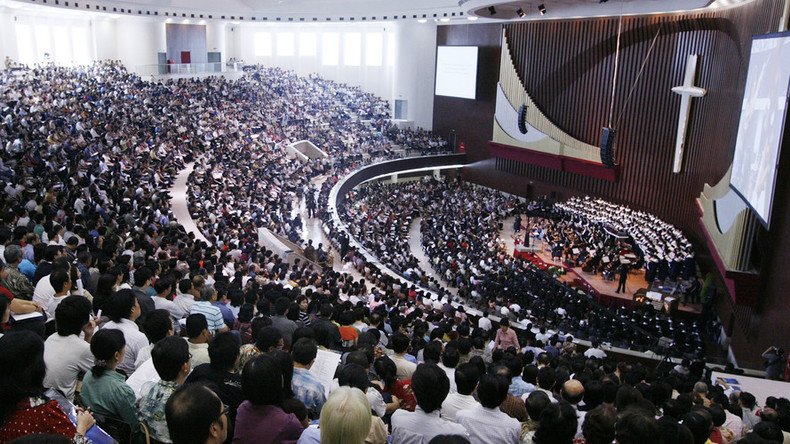
The separation of church and state is supposedly one of the cornerstones of the First Amendment. Yet nearly a third of black Protestants have heard pastors preaching in favor of Hillary Clinton, while the same number heard remarks against Donald Trump.
A new survey from the Pew Research Center shows that worshippers are hearing political speech from the pulpit ‒ something that has been illegal for more than 60 years. Of the 40 percent of Americans who attended religious services within the last few months (through the beginning of July), nearly two-thirds (64 percent) reported that religious leaders had spoken out on at least one political topic, such as religious liberty, homosexuality, abortion, immigration, environmental issues and economic inequality. Almost half (46 percent) said their clergy members had discussed multiple issues from the dais.
Nearly half (49 percent) of recent service attendees said their clergy rarely or never speak about social and political issues from the pulpit.
While only 14 percent of recent churchgoers said their clergy had spoken directly for or against a specific presidential candidate, religious endorsements or denouncements from the pulpit vary by sect ‒ and by race. In general, leaders are slightly more likely to speak out against a particular candidate (11 percent) than for one (9 percent).
Black Protestants are more likely to have heard clergy endorsing or denouncing a presidential candidate than any other group. Nearly three in ten have heard their pastor speaking in favor of Democratic nominee Hillary Clinton, while the same proportion (29 percent) have heard remarks against Republican nominee Donald Trump. Only 7 percent of black pastors appear to have denounced Clinton.
That same group is more likely to have heard their clergy advocating for voting in a primary or caucus ‒ 50 percent of black Protestants compared to 32 percent overall ‒ or in the general election for president, by 59 percent to 40 percent.
This last form of political preaching from the pulpit is allowed under the Johnson Amendment, a 1954 law that prohibits churches and other non-profit organizations from endorsing or opposing political candidates, or risk losing their tax-exempt status. They are, however, allowed to promote political engagement and speak of issues in general terms. The law was proposed by then-Senator Lyndon B. Johnson (D-Texas), which critics contend was his way of stifling nonprofits that backed his opponent. Groups like the Alliance Defending Freedom, which started the Pulpit Freedom Sunday or defiance movement, say the Johnson Amendment violates their freedom of speech.
The Internal Revenue Service (IRS) is tasked with enforcing that law, but has been hesitant to do so. Part of the problem is a lack of resources to go after offenders, thanks to consistent underfunding by Congress. On top of that, the agency is still dealing with the fallout of a scandal targeting the tax-exempt status of conservative nonprofits.
In February, Trump promised to overturn the Johnson Amendment if elected.
“I think maybe that will be my greatest contribution to Christianity ‒ and other religions ‒ is to allow you, when you talk religious liberty, to go and speak openly, and if you like somebody or want somebody to represent you, you should have the right to do it,” Trump told a group of about 1,000 evangelical leaders in June. “People walking down the street have more power than you, because they can say whatever they want.”
It’s a vow he reiterated in his acceptance speech at the Republican National Convention in July, and is now part of the GOP platform.
“They have so much to contribute to our politics, yet our laws prevent you from speaking your minds from your own pulpits,” Trump said. “I am going to work very hard to repeal that language and protect free speech for all Americans.”
Members of evangelical churches are far more likely to lean towards or identify with the Republican Party, according to a survey of US religious groups and Americans’ political leanings that Pew published in February.
The Pew survey on politics in the pulpit was conducted between June 5 and July 7 among 4,602 adults nationwide.








